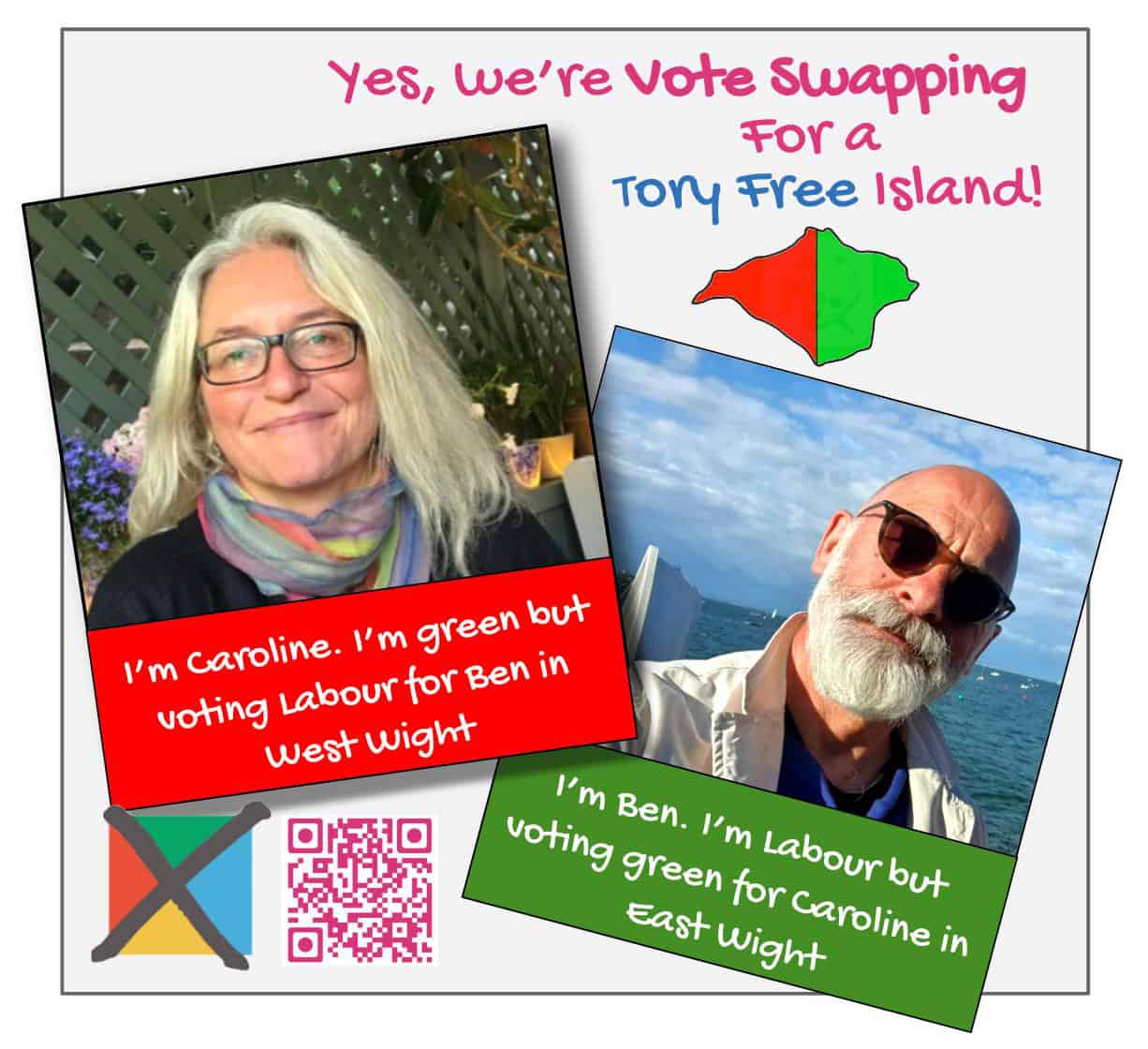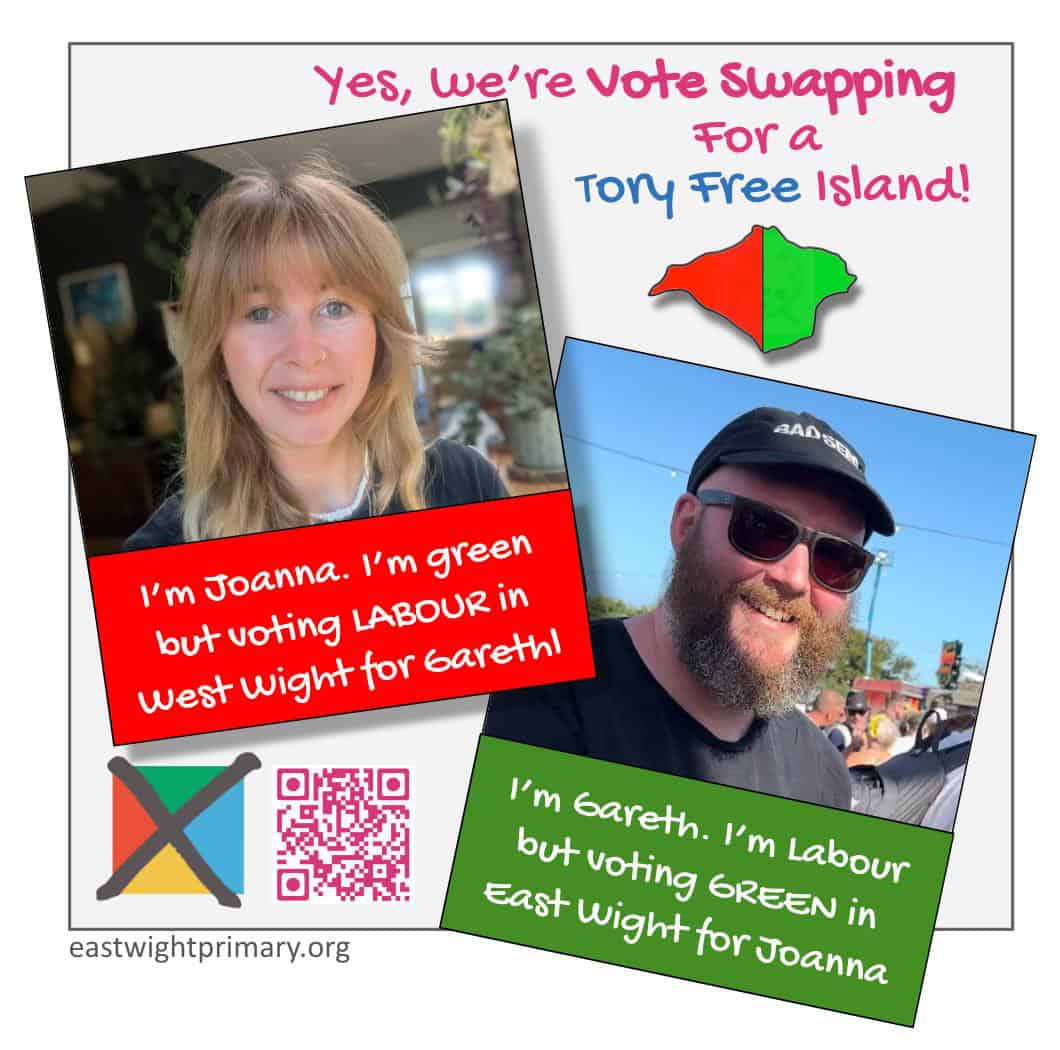News shared by Charity Garnett, on behalf of East Wight Primary. Ed
The Isle of Wight, previously Britain’s largest constituency, is getting two MPs this election, IW East and IW West. Local people, determined not to just get double the representation for Island Conservatives, have got organised.
If this is the ‘Tactical Voting Election’, then the newly split Isle of Wight is at the forefront, with its hyper-local vote swapping wave.
The tactical choices
The tactical choice West Side is Labour’s Richard Quigley, a popular local businessman and local councillor. East Side there was no clear tactical choice, so last October local people launched the East Wight Primary, in the image of the South Devon Primary, an innovative local tactical voting project.
Their process, involving a secure online vote of nearly 1,000 local electors, was won decisively by Green candidate Vix Lowthion, now the ‘People’s Champion’. The result is backed up by exit polls from local hustings which the Green won, or came a close second to Conservative candidate Joe Robertson, with Labour and Lib Dems a very distant joint third and fifth.
Vote swapping
Islanders are now actively ‘vote swapping’ across the new Island boundary, as determination to be a Tory MP free Island grows.


Bob Seely, who ate ‘half a sausage’ at an illegal lockdown BBQ attended by Richard Tice, appears to not be very popular. Using social media and informal networks, Islanders are increasingly clear on the best way to get the Tories out.
Tactical voting sites update their advice
Despite the MRP data suggesting otherwise, stopthetories.uk and tacticalvote.co.uk have altered their advice in East Wight because of the strength of the local vote swapping campaign.
Primaries have never happened before, and local people are very hopeful of a big upset on election night, both for Island Tories, and for devotees of MRP data, which takes no account of local campaigning.





